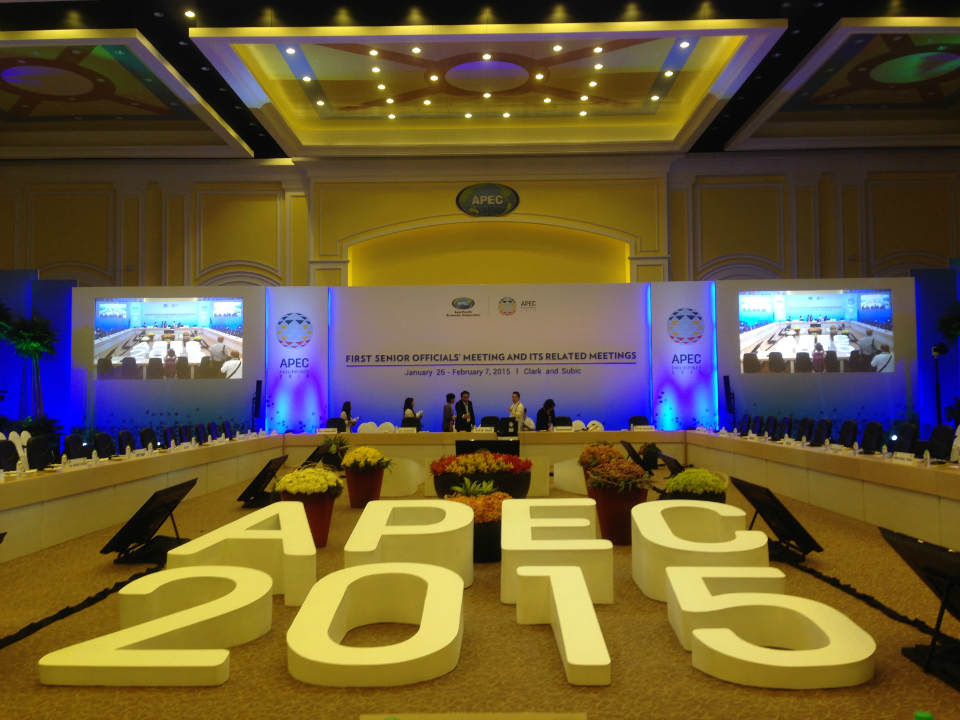8 Pleas, Declarations and Deals that Happened During APEC 2015
Nov 19, 2015 • 8List

Nov 19, 2015 • 8List
While there’s nothing wrong with oggling either #APEChottie, there’s a lot that could have flown under your radar.
Here are 8 important things that were discussed during the APEC Summit.
What it is: a Deal
TPP stands for Trans Pacific Partnership, and don’t beat yourself up if this is the first time you’re hearing about it. Details of this extremely mysterious free trade deal have been kept mostly secret from the public—even from US Congress (US President Obama has been the TPP’s loudest supporter). The US has succeeded in getting the 12 APEC countries are involved in the TPP to come to an agreement, even pushing Canadian Prime Minister to join in on the agreement despite having only been recently sworn in.
The TPP excludes China and Russia in their agreement (more on them later), as President Obama hopes that the agreement will ensure that China will no longer have a monopoly on trade in the region, while also serving as a basis and model for future trade deals.
“TPP will strengthen and broaden the mutually-beneficial linkages between our economies; enhance our regional and global competitiveness; support the creation of jobs and new opportunities for young people; promote economic growth and development in our countries; support innovation and help to alleviate poverty; and ensure the greatest benefits for our people.”
What it is: a Declaration
While the APEC Summit is usually reserved for business, economic development and trade talks and agreements (the Asia Pacific region accounts for about 60% of the global economy), the leaders have come to an agreement on the “urgent need for increased international cooperation and solidarity in the fight against terrorism.”
In the light of the recent terrorist attacks in France, Beirut and other parts of the globe, the participating APEC leaders declared that “economic growth, prosperity, and opportunity are among the most powerful tools to address the root causes of terrorism and radicalization.”
What it is: a Bargain
On the sidelines of the APEC Summit, Philippine President Aquino came to an agreement with Japanese Prime Minister Shinzō Abe in the light of increasing tension in the South China Sea. Japan and the Philippines will take steps to strengthen the “Strategic Partnership” they struck up in 2011. Tokyo will supply Manila with military equipment and technology that the Philippines could use should tensions in the territorial dispute escalate, and Japan will enjoy a visiting forces agreement with the country–the same that Australia and the United States enjoy: access to Philippine bases.
What it is: a Plea
Amidst the TPP agreement among the United States and other countries, Chinese President Xi Jinping continued to lobby for the FTAAP, Free Trade Area of the Asia-Pacific. He warned against fragmentation in the region, pushing that the FTAAP (which would render the effects of the TPP void) would make regional economic integration and growth “broader, deeper and more sophisticated.”
What it is: a Declaration
Local reporter Tina Monzon-Palma brought up the 2013 Canadian trash issue to Prime Minister Trudeau. Posed with a dilemma that occurred before his term, Trudeau assured that there was “a Canadian solution in the process of being developed” and acknowledged that the issue exposed issues that needed resolving within their government’s legislature, as there might be loopholes that these companies exploit to avoid action from the Canadian government. Watch it here.
What it is: a Plea
Throwing it’s support behind China’s FTAAP, Russia’s Vladimir Putin asserts that the only way to ensure responsible and transparent partnership is to deepen and develop regional economic integration. He stated that the “confidential fashion in which the Trans-Pacific Partnership negotiations were conducted is probably not the best way to facilitate sustainable growth in the Asia-Pacific region.”
Russia, along with neighboring nations, has been taking steps towards developing a Eurasian Economic Union (EAEU). He pushed the country’s steps in making themselves a more comfortable and conducive business environment, and promoted the nation’s commitment to clean energy and the importance of the Paris Climate Change Conference in ensuring rapid economic growth in the region.
What it is: a Plea
On that note, Obama urged other APEC leaders to focus on “the urgent and growing threat of climate change.” In December leaders from all over the world will convene in Paris to decide on a pact regarding climate change. Obama hopes that a legally-binding agreement will be signed that will ensure “a low-carbon future” by requiring both the public and private sectors to commit to renewable energy.
What it is: a Plea
Addressing the elephant in the room, President Obama reaffirmed the United States’ commitment to the defense and security of the Philippines, while urging China to cease construction on reclaimed islands. Apart from upholding the right of free navigation in the vital trade route, he also endorsed a process of arbitration as one of the “bold steps” necessary to ease tensions in the area and on Tuesday pledged military aid (amounting to US$250 million) to Asian nations standing up to China.
Anything else that was discussed during #APEC2015? Leave a comment and let us know.
Input your search keywords and press Enter.
